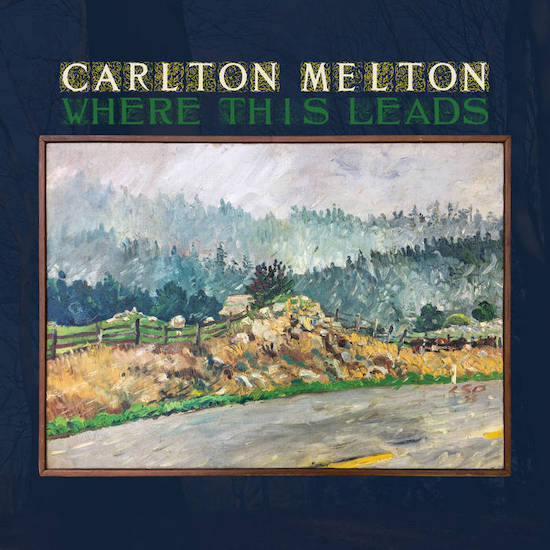One of the most interesting things about Carlton Melton’s music is that it is split in two. On each album, from debut Country Ways onward, there lives a restless conflict between different approaches: the experimental, the avant-garde and the improvisatory jostles for space with some of the more conventional tropes of heavy rock such as bludgeoning riffs and structured songwriting. Where This Leads, the San Francisco band’s seventh LP, is particularly divided within itself, and it makes for arguably their most compelling and original work yet.
Opener ‘The Stars Are Dying’ is firmly in the realm of abstraction, an exercise in pure atmosphere that might be compared with Sunn O)))’s sonic recreation of the earth’s tectonic shifts on Pyroclasts, with its rhythm-less, swollen soundscape of guitar effects and synths. At over 17 minutes long this exhausting and relentlessly amorphous track dominates the album, along with the other track that flirts with the edges of accessibility, the 13-minute ‘Smoke Drip Revisited’, which unwaveringly repeats its minimalist guitar refrain.
The rest of the album is mixed between rough, uncomplicated and propulsive rock that might have sat neatly on Carlton Melton albums gone by, and, more interestingly, a sonic aesthetic that feels more folk-informed than one might associate with this band. Previous album Mind Minerals was perhaps the apex, and even the conclusion, of their noisiest tendencies (or at least that volume being the dominant force on an album).
For example, ‘Butchery’ and ‘Crown Shyness’ might be compared with the more textured and produced side of the American Primitive movement in folk guitar – or at least as it has evolved in recent years. Another track, the very lovely ‘Porch Dreams’, might even be called catchy, with its Laurel Canyon-esque haziness that recalls the looser moments of Jefferson Airplane. Guitarist Rich Millman in particular exhibits a more expansive style and skill by embracing melody and mellowness in this unprecedented way.
Despite those very long pieces, it is these more romantic tracks that define Where This Leads, ensuring the album possesses its own distinct character. And this is important, as it often feels like Carlton Melton’s back catalogue, with its emphasis on noise and ambience, can blend into one. Noise, however, is hardly neglected here: both ‘Waylay’ and ‘Three Zero Two’ are crunching, threatening cacophonies of Hawkwind-inspired racket. At 70 minutes long, Carlton Melton, typically, make no concession to brevity, yet Where This Leads’s variety and its balance make this a consistently fascinating beast.


